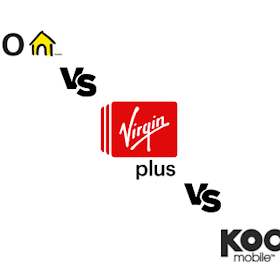By
Alex Angove
Last updated
 The HTC One is doing quite well for itself. The new Zoe camera and other features like the BoomSound speakers are receiving favorable reviews and numerous online polls show the One outdoing the Samsung Galaxy S4 in terms of popularity.
It’s no surprise then that Google is looking to add the One to its Nexus stable, stripping out HTC’s Sense UI and replacing it with the Google Android experience.
This is great for Google, but does it add anything for the everyday smartphone user? Is less Sense a step forward for HTC?
The HTC One is doing quite well for itself. The new Zoe camera and other features like the BoomSound speakers are receiving favorable reviews and numerous online polls show the One outdoing the Samsung Galaxy S4 in terms of popularity.
It’s no surprise then that Google is looking to add the One to its Nexus stable, stripping out HTC’s Sense UI and replacing it with the Google Android experience.
This is great for Google, but does it add anything for the everyday smartphone user? Is less Sense a step forward for HTC?
Faster updates
The main reason to want a Google Edition phone is to get the latest updates first. Vanilla Android devices, specifically Nexus handsets and tablets, are always the first to get new Android updates -- by a long way. The custom skins/UIs of third party manufacturers like HTC and Samsung have to be adapted to function on each new OS version. The waiting time for an update on a non-Nexus phone can be anywhere from months to a year to not at all. It can be incredibly frustrating buying a handset, only to have its OS superseded a few months down the track and never seeing any improvement on your own device. Many users prefer to play it safe and go with a Google-branded option that will definitely see a refresh within a month or two of a new update being announced.Where’s the Sense in this?
Sense is HTC’s own Android interface. Like almost every other OEM, HTC does its best to differentiate itself from the competition by providing its own end user experience. The HTC One sports HTC’s latest version of this user experience: Sense 5.0. Many of the old issues with Sense have been addressed in version 5.0, with a fresh artistic style and new features. Lots of HTC’s latest innovations are tied to Sense too, like BlinkFeed and the Zoe camera. Dropping Sense and going with vanilla Android will mean that these features are no longer available. You’ll be left with the stock camera experience, the basic core apps and Google’s minimalist aesthetic. Of course, this could be the exact reason that a vanilla One could draw a crowd. While the Ultrapixel camera would still likely come along for the ride, many users may not see the Zoe camera features as particularly useful, for example. A vanilla One would be free of bloatware and potentially unwanted features like BlinkFeed, making it much more efficient at general operations and multitasking.You’ll pay
 The bad news is that the Google Experience HTC One will only be available through Google, and like the Google Edition (GE) Samsung Galaxy S4, announced at Google I/O this year, the phone is unlikely to be subsidized.
This means that if you want a straight-Android HTC One, you’ll have to pay full-price for it and this is likely to be in excess of US$600. For many, this will be a lot money to pay just to strip out all of HTC’s hard work.
Another implication is that whatever the next Nexus ends up looking like, it’ll likely be much cheaper than the GE HTC One. Even if the One is a more high-end device – and this is likely – a subsidized Nexus could easily boast more bang for your buck.
The bad news is that the Google Experience HTC One will only be available through Google, and like the Google Edition (GE) Samsung Galaxy S4, announced at Google I/O this year, the phone is unlikely to be subsidized.
This means that if you want a straight-Android HTC One, you’ll have to pay full-price for it and this is likely to be in excess of US$600. For many, this will be a lot money to pay just to strip out all of HTC’s hard work.
Another implication is that whatever the next Nexus ends up looking like, it’ll likely be much cheaper than the GE HTC One. Even if the One is a more high-end device – and this is likely – a subsidized Nexus could easily boast more bang for your buck.
Why bother?
Ultimately there doesn’t seem like there’s too much of a reason for HTC to avoid releasing a GE HTC One. It’ll compete with the GE GS4 and whatever Nexus comes next. At the very worst it could end up stealing customers who were going to buy a Sense-enabled One anyway, leading to very little lost in profit. On the other hand it could go towards getting the HTC brand name out there a little more, at the small cost of Sense. So the question is not ‘why bother’ but ‘why not?’ The cost of development and marketing would be minimal. With even limited potential for extra sales and brand proliferation it’s at least worth HTC giving it a go. As far as customers are concerned they’ll be able to choose between two high-end devices with Nexus-esque offerings. A few minutes on any Android forum proves that there’s at least interest in such a handset and the kind of users who are interested in vanilla Android usually have enough background knowledge about gadgets to make well-informed decisions. It’s likely that the HTC One Google Edition won’t make too many waves in the mobile market, but it should at least turn a profit for HTC while making a few die-hard Android fans happy.Related Articles
Find Better Phones and Plans
Hundreds of cell phone plans unpacked. All the facts. No surprises.




































